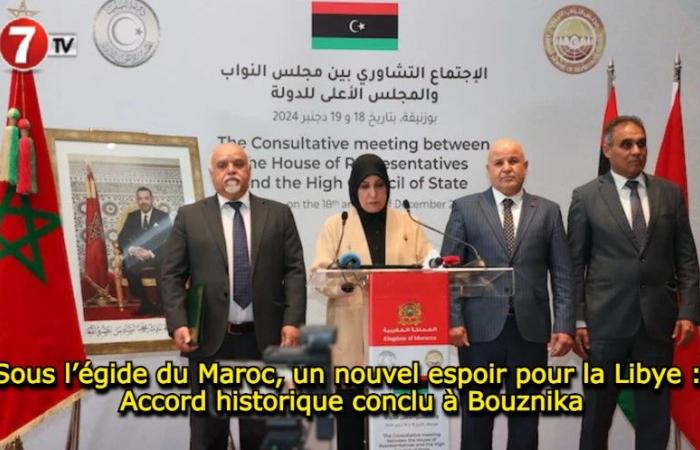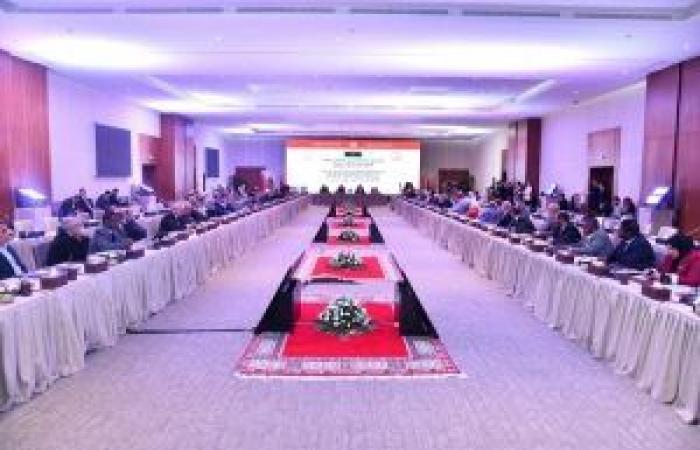A decisive step towards political stability in Libya
In Bouznika, Morocco, a major breakthrough was made Wednesday evening in the Libyan reconciliation process. The Libyan Parliament and the High Council of State announced a crucial agreement regarding the preparatory phase for the organization of national elections. This joint commitment aims to overcome the political impasse that has hampered Libya for years.
The pillars of the agreement: an ambitious roadmap
During a press conference, Sarah Essouih, member of the Libyan Parliament, detailed the foundations of this agreement, anchored in solid legal and political references, including:

- The Constitutional Declaration and its amendments.
- The Skhirat Political Agreement.
- UN Security Council Resolution 2259 (2015).
- The Geneva and Cairo agreements between the two institutions.
Reorganization of the executive: a national priority
The agreement proposes a reorganization of the executive authority, with the creation of a joint committee responsible for:
- Appoint a new executive authority.
- Collaborate with the UN mission and other local and international partners.
- Guarantee transparency and prepare for free and fair elections.
Economic development and local governance: an imperative of equity
The agreement includes measures to reorganize national resources, with initiatives such as the national census and the “Intilaka” project. A joint committee will be responsible for:
- Ensure equitable distribution of resources between strategic projects and local initiatives.
- Strengthen transparency and fight corruption.
- Modernize economic laws to stimulate reforms.
Security and sovereignty: restoring state authority
A security component is also integrated, with:
- A plan to restore national sovereignty, control borders and restore order.
- Support for the work of the joint military commission (5+5).
- Implementation of the recommendations of the Defense and National Security commissions.
Sovereign appointments and next steps
A joint committee will be formed to finalize appointments to key state positions, ensuring consensual selection and in accordance with the criteria defined by the Libyan Political Agreement.
The formed committees will have to submit their proposals within a month, and the next meeting is scheduled in Derna in January 2024.
The crucial role of Morocco: a respected mediator
Sarah Essouih welcomed the involvement of the Kingdom of Morocco, which has once again demonstrated its pivotal role in bringing the Libyan parties closer together. The heads of the two institutions, Khaled Al-Machri and Aguila Salah, are expected in Bouznika to officially sign this agreement and mark this important step in an ongoing peace process.
This new agreement, the result of an inclusive dialogue, constitutes a glimmer of hope for a Libya in search of stability, thanks to the unwavering support of Morocco, which has become a reference in regional diplomacy.
The editorial team/Le7tv
Local
Morocco









